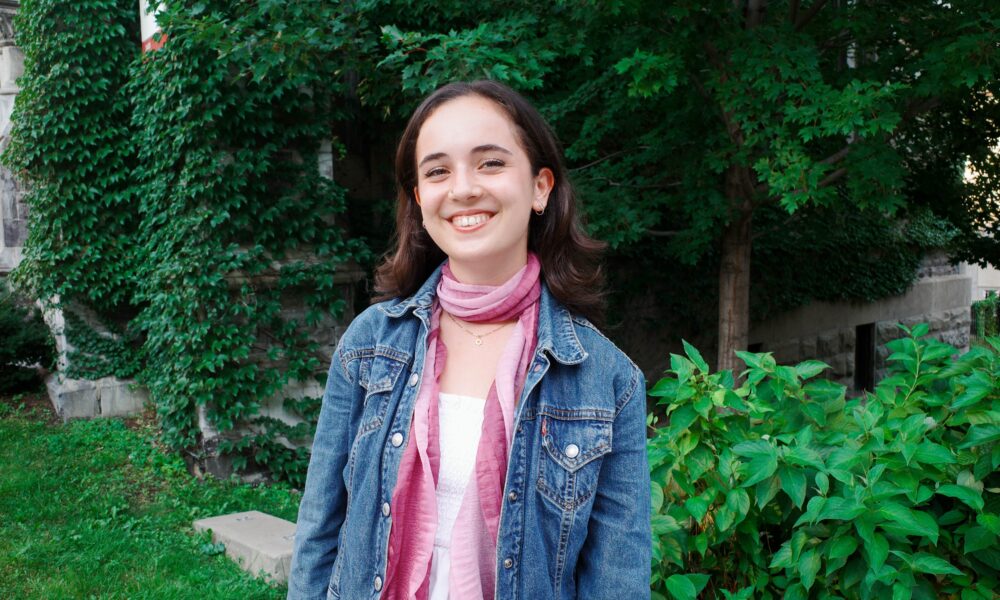Five days a week for the past four years, my classmates and I have sat in lecture halls and listened to how humans are destroying the Earth. We’ve learned about global leaders who keep failing to meet their stated climate commitments or how others choose to deny climate change entirely, preferring to suck every last drop of fossil fuels from the ground. We’ve learned about the sneaky ways in which extractive industries rip up rainforests and slither away unscathed. We’ve learned about how we value the natural world in monetary terms, neglecting its inherent worth. We’ve learned about the deep sense of alienation that many people feel from the very Earth that sustains us. I’ve learned all of this and yet, I am hopeful.
While corporations ought to address their climate impacts, they lack the monetary incentives to do so holistically. Governments are so petrified of losing grip on their power that many provide weak, surface-level solutions at best. In an effort to maintain the status quo, they will cut corners and attempt to delegitimize the scale of the threat of climate change. Add to all of this Trump’s recent re-election and the inevitable re-withdrawal from the Paris Agreement and rollbacks of environmental protections from a Republican-controlled Congress, and the threat starts to feel insurmountable.
So where does that leave us? If corporations and governments can’t adequately address climate change and individual actions feel like just a drop in the bucket, what do we do? Defect? Fly to Bali in a private jet? Buy another piece of synthetic clothing from Shein? Do nothing else but consume because fuck it, the world’s gonna burn anyway?
Recognizing that we are reaching potentially irreparable “ecological tipping points,” as Kyle Whyte, an Indigenous philosopher, writes, is scary—but instead of resigning ourselves to complacency, we can find solace in the creation of community. Individual actions do matter when they are understood as part of a larger network of care.
We have proof of this in our activist histories and current realities. After more than 10 years of litigation and protesting, it was the broad coalition of Indigenous peoples, ranchers, business-owners, and allies who struck down the implementation of the Keystone XL pipeline. In California, following a massive fish kill in 2002, the Yurok Tribe and allies went to court to breach the dams along the Klamath River. In the past year, those dams have been taken down, the river restored to its natural flow. Less than a year ago, McGill committed to divest from direct holdings in Carbon Underground 200 companies as a result of over a decade of Divest McGill’s direct action. When passionate individuals come together, they create a kind of power that institutions cannot ignore. These connections start small with one conversation or one gift to a neighbour.
Last winter, I lived with 20 other 20-something-year-olds in a hostel with one stove and one oven. What sounded to me like the premise of a reality TV show filled with infighting and gossip turned out to be one of the most fulfilling experiences of my life. We quickly self-organized, deciding on a system of rotating group dinners. As we sat around the table every night, over plates of falafel made from scratch or a family recipe for lasagna, we developed more than just deep relationships. Our commitment to this nightly ritual inspired a culture of sharing and working toward the collective benefit. This instilled values that we carry into our personal lives, work, and political action. We created a microcosm of our visions for the future; it is through the creation of these utopic enclaves that we push toward a more just world.
When I started my degree in Environment, I firmly believed that individual actions were useless in solving climate change—it was the corporations and governments that needed to do the work. And it’s true: One action by one person, just once, does nothing. But when we acknowledge our interdependence, we begin to see ourselves not as unremarkable individuals but as crucial parts of an ecosystem.









